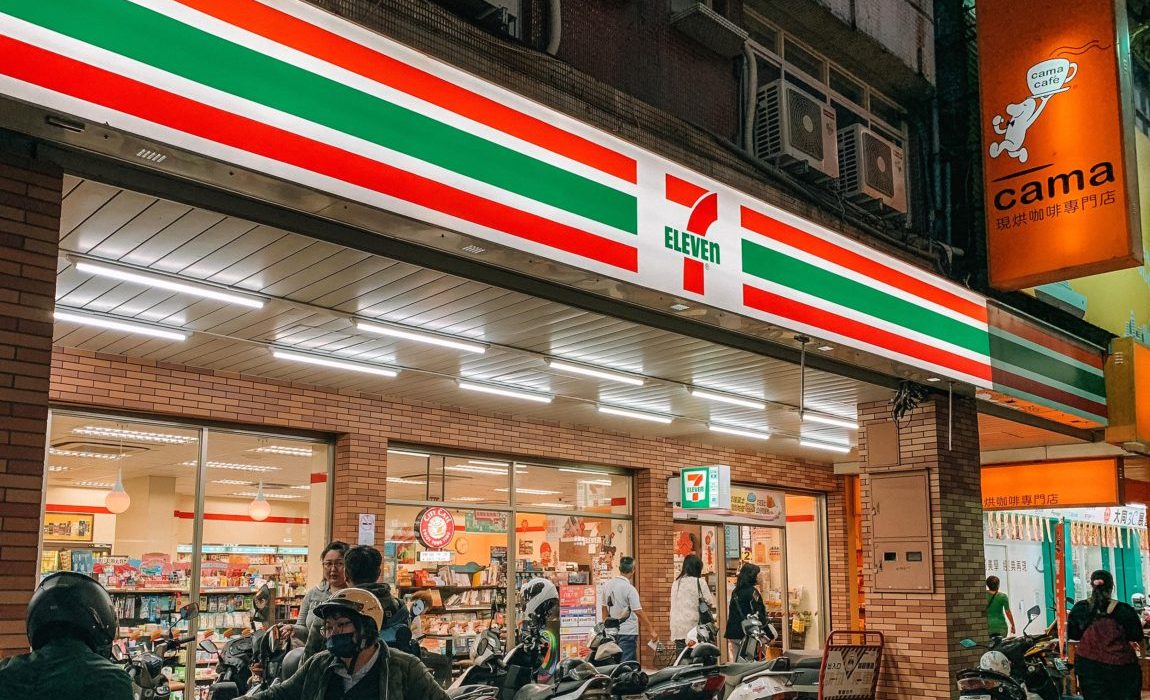In a surprising turn of events, 7-Eleven, a ubiquitous symbol of convenience, has declared an ambitious commitment to eliminate single-use plastics from its operations in Taiwan by 2050. Breaking new ground as the first convenience store chain in Asia to make such a promise, this move is a resounding victory for environmental advocates who have long championed a reduction in plastic waste. In this blog post, we’ll delve into the details of 7-Eleven’s groundbreaking initiative, the driving forces behind it, and the potential implications for the broader global movement to combat plastic pollution.
Heading into a Plastic-Free Future:
7-Eleven’s announcement comes on the heels of intense pressure from environmental groups, notably Greenpeace East Asia’s Taipei office, which garnered support through a public petition with an impressive 210,000 signatures. The call for change stems from a 2020 investigation revealing that 7-Eleven stores in Taipei City and Kaohsiung were generating a staggering 15,000 tons of plastic waste annually, with a significant portion ending up in incinerators.
The Company’s Pledge and Market Research:
To fulfill its commitment, 7-Eleven plans to gradually reduce plastic usage by 10% each year. This reduction strategy is not a shot in the dark; it follows extensive market research and pilot programs. Over the past year, the company has experimented with reusable cups in four stores and established reusable delivery package return stations in 18 stores. Plastic straws have already been phased out. Family Mart, another major convenience chain, is also contributing to the cause with trials involving reusable containers for cooked meals and beverage cup rentals, with plans for further expansion.
The Paradox of Convenience:
It’s intriguing to witness a convenience store, a symbol of modern fast-paced living, taking strides to address the environmental challenges posed by single-use plastics. These stores, designed to cater to our desire for instant, on-the-go goods, inadvertently contribute to the proliferation of disposable packaging. The convenience culture that has fueled the demand for single-use plastics may now find a surprising ally in the push for sustainability.
Rethinking Convenience Culture:
For years, Treehugger has advocated for a cultural shift to combat unnecessary packaging. The argument centers on the need to slow down, savor moments, and adopt practices like preparing meals at home in reusable containers. The irony of 7-Eleven’s current business model adopting an anti-single-use plastic stance is not lost, but it opens up an interesting discussion on how convenience and sustainability can coexist.
The Potential of Reusables in Dense Urban Settings:
In densely populated urban locations like Taipei, the effectiveness of a reusables return system is magnified. The sheer ubiquity of 7-Eleven stores in the city makes it convenient for consumers to return cups and containers, showcasing the potential for such initiatives in addressing plastic waste in busy metropolitan areas.
Challenges and Caution:
While the commitment to a plastic-free future by 2050 is commendable, there are inherent challenges and potential pitfalls. One concern is the risk of replacing fossil fuel-based plastics with bio-based alternatives that may not necessarily be more sustainable. Plastic campaigners emphasize the importance of solutions rooted in reuse and reduction rather than mere substitution.
Addressing the Challenges:
To address these challenges, 7-Eleven has embarked on a path of gradual change, with a 10% reduction target each year. This incremental approach allows the company to fine-tune its strategies, learn from ongoing trials, and adapt to unforeseen challenges. By incorporating reusable cups and delivery package return stations into select stores, 7-Eleven is actively testing the waters of sustainability. Family Mart’s parallel efforts add another layer to the collective movement towards a plastic-free future.
The Role of Culture in Plastic Consumption:
The paradox of convenience culture contributing to plastic waste is a complex issue deeply ingrained in modern society. The fast-paced, on-the-go lifestyle has given rise to a reliance on single-use items. Breaking this pattern requires a cultural shift, encouraging individuals to reassess their consumption habits and embrace more sustainable alternatives.
Raising Awareness and Education:
7-Eleven’s commitment also opens the door to increased awareness and education. As a major player in the convenience store industry, the company has the opportunity to influence consumer behavior positively. Initiatives like reducing plastic straw usage and offering reusable cups send a powerful message to customers, encouraging them to be more mindful of their environmental impact.
The Global Impact:
The significance of 7-Eleven’s pledge extends beyond Taiwan’s borders. As the first convenience chain in Asia to make such a commitment, 7-Eleven sets a precedent for other businesses in the region to follow suit. The global nature of convenience store chains, especially those with a massive presence like 7-Eleven, means that positive changes initiated in one location can have a ripple effect worldwide.
Timeline and Accelerating Change:
The commitment to achieving a plastic-free status by 2050 raises questions about the feasibility of long-term promises in a rapidly evolving world. Suzanne Lo, a plastic campaigner, rightly urges a quicker timeline and global scalability. While 7-Eleven’s 10% annual reduction is a commendable start, the urgency of addressing plastic pollution calls for an acceleration of such initiatives.
Looking Ahead:
7-Eleven’s pledge to eliminate single-use plastics in Taiwan marks a significant milestone in the battle against plastic pollution. As the journey towards a plastic-free future unfolds, it serves as a call to action for businesses worldwide to reevaluate their practices. The more companies that hop on the no-single-use-plastic train, the closer we get to a sustainable and environmentally friendly global community. The time for change is now, and 7-Eleven has taken the first steps towards a greener, plastic-free future. The commitment, challenges, and potential for a cultural shift demonstrate that sustainability and convenience can coexist harmoniously, paving the way for a more eco-friendly future.

